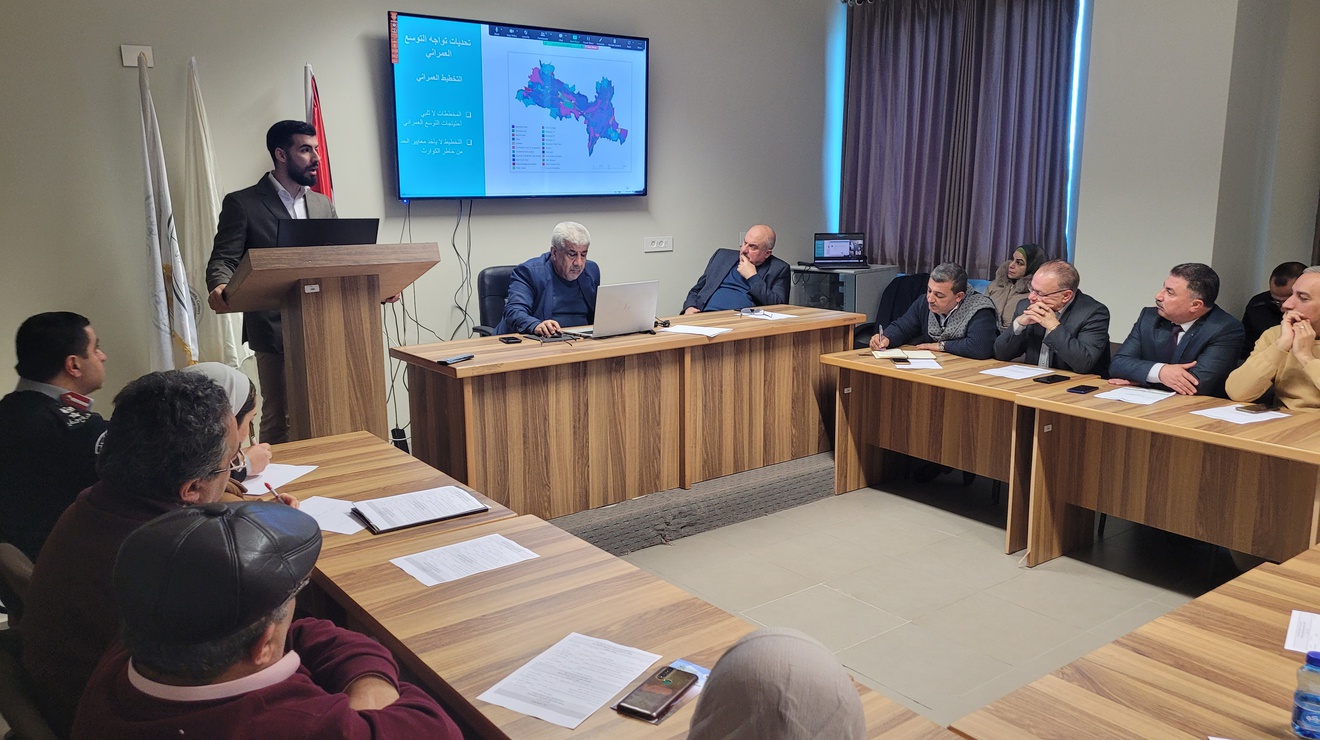The Urban Planning and Disaster Risk Reduction Center Facilitates Key Workshop and Exhibition on Tomorrow’s Cities Project


The Urban Planning and Disaster Risk Reduction Center at An-Najah National University recently hosted the Stakeholders and Policy Makers Engagement workshop and an associated exhibition to apprise decision-makers and policymakers in Nablus of the pivotal outcomes of the Tomorrow’s Cities project.
The workshop served as a platform to gauge the reactions of decision-makers and policy drafters, collecting valuable feedback on implementation mechanisms, available opportunities, and potential challenges. Simultaneously, a three-day exhibition showcased the project's progress through photos and maps, providing a comprehensive visual narrative from its inception to the latest phases.
Commencing with a moment of silence in memory of the events in the Gaza Strip, the workshop emphasized the challenges faced by Palestinians, acknowledging the Israeli occupation as a significant hardship. A tribute was paid to the late founder and former president of the Tomorrow’s Cities organization, Professor John McCloskey, symbolizing gratitude for his unwavering support for justice and the rights of the Palestinian people.
The Tomorrow’s Cities project focuses on urban planning for vacant areas in cities, prioritizing disaster risk reduction, particularly for vulnerable communities. Nablus proudly joined this initiative as the first Arab city and the fifth city globally on May 24, 2023.
Attended by heads of institutions, policymakers, specialists, and representatives of bodies directly related to the project, including Nablus Municipality, the Ministry of Local Government, and the Engineers Syndicate, the workshop featured informative sessions and videos presented by the Palestinian team. These sessions explained the project, its completed stages, upcoming phases, challenges, and future visions for Nablus from various community groups.
The workshop concluded with valuable results and recommendations, emphasizing spatial and political frameworks to overcome challenges, the benefits of project outputs for future municipal planning, the necessity of a comprehensive awareness plan, and the importance of strategic planning amid geopolitical challenges.
In the spirit of proactive risk management, the Tomorrow’s Cities project represents an opportunity to translate scientific efforts into tangible policies implemented on the ground. All participating officials, decision-makers, and policymakers expressed unanimous agreement in adopting the principles of the Tomorrow’s Cities system. The groundwork is now open for the practical implementation and organization of these principles.






